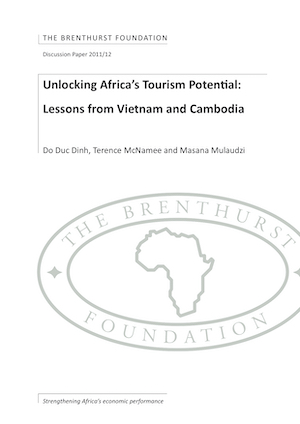Publications
Unlocking Africa's Tourism Potential: Lessons from Vietnam and Cambodia.

Machel-Mandela Fellow, The Brenthurst Foundation

Former Deputy Director, The Brenthurst Foundation

Chairman, Academic Board, Centre for Socio-Economic Studies in Hanoi
The worldwide tourism industry is booming. In 2010, tourism’s contribution to global GDP was 5 per cent, and to employment 6–7 per cent, through direct and indirect contributions. No continent stands to benefit more from this boom than Africa. But with the notable exception of South Africa, Sub-Saharan Africa is by far the least competitive and poorest performing region in global tourism rankings.
Although Africa’s population accounts for 15 per cent of the global total, its share of tourism in 2010 was only 5.2 per cent (approximately 40 million visitors). A healthy increase on the 2008 figure of 3.6 per cent, but still far off its commensurate share.
There are two countries that African countries can look to for inspiration and some lessons on how to build a thriving tourism industry in the face of similarly formidable challenges, from ruinous colonial legacies to weak human resources and shattered infrastructure: Cambodia and Vietnam, two Southeast Asian neighbours that have made remarkable progress in developing their tourism in the past decade.
In July 2011 the Brenthurst Foundation in partnership with Vietnam’s Institute of Africa and Middle East Studies convened two roundtables on tourism, one in Cambodia’s capital Phnom Penh and the other in Da Nang, a regional capital in Vietnam. The roundtables brought together local tourism officials, both government and the private sector, with senior tourism officials from three southern African countries – Swaziland, Zambia and Mozambique. This Discussion Paper draws on the findings of the roundtables and some additional research.


